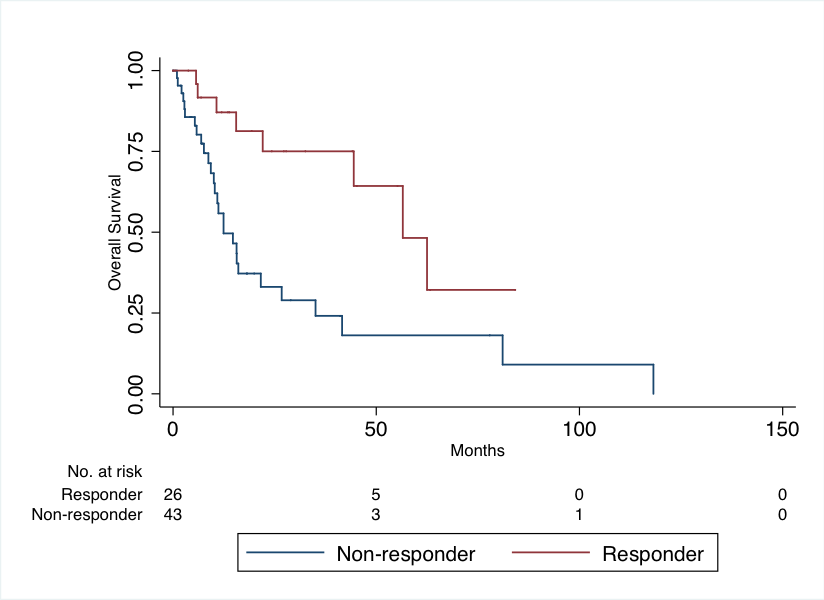Early Stable Disease after Cytoreductive Nephrectomy is a Benchmark for Long Term Outcomes
Alice Yu, MD, Edouard Nicaise, BS, Melissa Huynh, MD, Douglas Dahl, MD, Matthew Wszolek, MD, Adam Feldman, MD, Michael Blute, MD
Massachusetts General Hospital, Boston, MA
INTRODUCTION: The role of cytoreductive nephrectomy (CN) is controversial in the targeted therapy era. Results from the CARMENA and SURTIME trials question the role of CN when more effective systemic treatments are available. However, patient selection is key and a good response from surgery can delay the use of cytotoxic agents and potentially improve survival. The objective of this study is to assess whether early responders to CN have better long-term outcomes.
METHODS: Using a retrospective institutional database, 76 patients who underwent CN between September 2002 and January 2018 were identified. Those who had stable disease on their first evaluation within 6 months after surgery were considered responders. Non-responders demonstrated progression of disease defined as increased volume or new sites of metastasis. Survival analysis was conducted using Kaplan-Meier and log-rank tests.
RESULTS: Median age was 61.0 years (IQR 52.8-70.5) in responders and 56.5 (IQR 52.1-70.9) in non-responders. Only 4 patients received systemic treatment before surgery, 2 in each group. At the time of surgery, 32 had lymph node dissection and 15 underwent concurrent metastatectomy. After a median follow up of 11.6 months (IQR 5.2-29.3), 38 deaths were observed. Overall survival was significantly better in responders (P=0.002, Figure 1) with median survival of 56.5 months versus 12.4 months in non-responders. A good response to CN also delayed need for systemic treatment. Median time to start of systemic treatment was 26.1 months in responders compared to 2.5 months in non-responders (P=0.003).
CONCLUSIONS: A good early response to CN is associated with better overall survival. These findings suggest that some patients do benefit from surgery and future studies need to focus on how to better identify CN responders. 
Back to 2019 Abstracts
